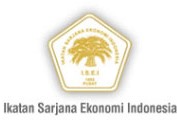The Reluctance Phenomenon of Islamic Banks to Offer Profit-Loss Sharing Financing
(1) Faculty of Economics and Business, Universitas Syiah Kuala
(2) Faculty of Economics and Business, Syiah Kuala University
Abstract
This study contributes to the existing literature on the phenomenon of lower valume of Profit-Loss Sharing (PLS)-based products offered by Islamic banks by comprehensively discussing and analyzing the issue from the internal, external, and regulation perspectives, taking the case of PT. Bank Aceh Syariah (BAS) in Indonesia. Using a grounded theory approach, this study interviews selected informants who are knowledgeable in Islamic economics, banking, and financial theories and practices, including experts, practitioners, customers, and regulators. Viewed from three aspects, namely: internal, external, and regulation, the study found that, from the internal aspect, the problem of the low volume of PLS-based financing products is caused by six factors, namely: high risk, lack of quality and quantity of human resources, complicated handling, lack of banking product innovation, asymmetric information, and lack of socialization. Meanwhile, from the external aspects, it is caused by three factors, namely: moral hazard, lack of community's knowledge of Islamic banking products, and low demand. Finally, from the aspect of the regulation, it is caused by a lack of supportive regulation. By tackling these issues, it is believed that the Islamic bank could offer more PLS-based products that finally contribute to the prosperity of the public.
Keywords
Full Text:
PDFReferences
Adnan, M. A. & Purwoko, D. (2015). Analysis of the factors that influence the low mudharabah financing according to the perspective of Islamic bank management with a critical approach. Journal of Accounting and Investment, 14(1), 13–31.
Andraeny, D. (2011). Analysis of the influence of third party funds, profit sharing rates, and non-performing financing on the volume of profit-sharing based financing on Islamic banking in Indonesia. Simposium Nasional Akuntansi XIV, 47–53.
Annisa, L. N. & Yaya, R. (2015). The influence of third party funds, profit sharing rates and non-performing financing on the volume and portion of profit-sharing based financing on Islamic banking in Indonesia. Share: Jurnal Ekonomi dan Keuangan Islam, 4(1), 79–104.
Anwar, M. C. (2016). Analysis of the factors causing the low interest in using mudharabah financing. IAIN Tulungagung.
Aprilia, S. & Mahardika, D. (2019). Factors affecting profit sharing financing at Islamic commercial banks in Indonesia. Jurnal Riset Akuntansi Kontemporer, 11(1), 9–15.
Ascarya, A. (2014). Sharia Banking Contracts and Products [Akad dan Produk Perbankan Syariah]. Jakarta: PT. Raja Grafindo Persada.
Ascarya, A. & Yumanita, D. (2005). Looking for low solution for profit sharing financing in Indonesian Islamic banking. Buletin Ekonomi Moneter dan Perbankan, 8(1), 7–43.
Bank Aceh Syariah (2020). Annual Report: 2017-2019. Banda Aceh. Available at: http://www.bankaceh.co.id/?cat=9.
Beik, I. S. (2006). Islamic Banks and Real Sector Development [Bank Syariah dan Pengembangan Sector Riil]. Jakarta: Pesantren Virtual.
Bidabad, B. (2019). Economic-juristic analysis of usury in consumption and investment loans and contemporary jurisprudence shortages in exploring legislator commandments. International Journal of Islamic Business & Management, 3(2), 1–15.
Birks, M. A& Mills, J. (2015) Grounded Theory: A Practical Guide. USA: Sage.
Choirudin, A. A& Praptoyo, S. (2017). Analysis of factors affecting mudharabah profit sharing financing at Islamic commercial banks. Jurnal Ilmu dan Riset Akuntansi, 6(9), 23–41.
Chowdhury, A. H. M. Y., Saba, N. & Habib, M. (2019). Factors affecting the choice of Islamic banking by the customers : A case study. 3(1), 1–5.
Ministry of Religion of the Republic of Indonesia. (2005) Al-Quran and Translation. Jakarta: CV. J-ART.
Imam, P. & Kpodar, K. (2016). Islamic banking: Good for growth?. Economic Modelling, 59, 387-401. doi: 10.1016/j.econmod.2016.08.004.
Karim, A. (2001). Islamic Economics: A Contemporary Study [Ekonomi Islam: Suatu Kajian Kontemporer]. Jakarta: Bina Insani.
Karim, A. (2010). Islamic Bank Fiqh and Financial Analysis [Bank Islam Analisis Fiqh dan Keuangan]. Jakarta: Raja Grafindo Persada.
Kassim, S. (2016). Islamic finance and economic growth: The Malaysian experience. Global Finance Journal, 30, 66-76. doi: 10.1016/j.gfj.2015.11.007.
Khanifah, Z. (2015) Analysis of factors affecting the level of profit sharing financing at Mega Syariah Bank in 2010-2012. IAIN Tulungagung.
Latif, S. D. H. (2019). Awareness and Perceptions of Muslim Society towards Islamic Banking in the Philippines. IJIEF:International Journal of Islamic Economics and Finance, 1(2), 209–228. doi: 10.18196/ijief.1211.
Majid, M. S. A. (2011). Grounding Islamic Banking in "Bumoe Syariah". Aceh Economic Review, 16–19.
Majid, M. S. A. (2014a). Contemporary Islamic Economics. [Ekonomi Islam Kontemporer]. Jakarta: Laznas BMT.
Majid, M. S. A. (2014b). Sharia banking regulations: Comparative study between Malaysia and Indonesia. Medias Syariah: Wahana Kajian Hukum Islam dan Pranata Sosial, 16(1), 231–254.
Majid, M. S. A. (2017). Eradicate poverty of the people of Aceh with sharia. Medias Syariah: Wahana Kajian Hukum Islam dan Pranata Sosial, 15(2), 209–220.
Majid, M. S. A. & Kassim, S. H. (2015). Assessing the contribution of Islamic finance to economic growth: Empirical evidence from Malaysia’, Journal of Islamic Accounting and Business Research, 6(2), 292–310. doi: 10.1108/JIABR-07-2012-0050.
Majid, M. S. A. & Zulhanizar, S. (2016). The patronage behaviour of Islamic bank’s customers: Empirical studies in Aceh. Al-Iqtishad: Jurnal Ilmu Ekonomi Syariah, 8(2), 201–212.
Mansour, I. H. F. (2019). Customers’ perceptions of selection criteria used by Islamic bank customers in Sudan: The importance of Shariah compliance. Journal of Research in Emerging Markets, 1(4), 41–53.
Miles, M. B., Huberman, A. M., & Saldana, J. (2014) Qualitative Data Analysis: A Methods Sourcebook. CA: Sage Publications Ltd.
Nabhan, F. (2010). Profit lost sharing: Solusi ekonomi Islam menghadapi globalisasi ekonomi. Jurnal Sekolah Tinggi Agama Islam Negeri (STAIN) Salatiga, 1(2), 279–301.
Nastiti, N. & Kasri, R. (2019). The role of banking regulation in the development of Islamic banking financing in Indonesia. International Journal of Islamic and Middle Eastern Finance and Management, 12(5), 643–662.
Nor, A. M. & Ismail, S. (2020). Profit and loss sharing (PLS) and non-PLS Financing in Malaysia: Which one should be the one?. KnE Social Sciences, 14–25.
Nurhasanah, N. (2010). Optimizing the role of mudharabah as a contract of cooperation in the development of Islamic economics. Syiar Hukum, 12(3), 285–296.
Prasetyo, P. A. & Burhan, M. (2012) Identification of factors that influence the low Islamic banking profit sharing financing (Case Study of BRI Syariah Bank Malang Branch). Jurnal Ilmiah FEB, 2, 1–17.
Setiawan, I. (2019) The role of Islamic banking in the development of economic sectors in Indonesia. International Journal of Applied Business Research, 1(02), 88-99. doi: 10.35313/ijabr.v1i02.70.
Sharia Banking Statistics (2020). Islamic Banking Statistics 2016-2020 [Statistik Perbankan Syariah 2016-2020]. Jakarta. Available at: https://ojk.go.id/en/kanal/perbankan/.
Warninda, T. D., Ekaputra, I. A. & Rokhim, R. (2019). Do Mudarabah and Musharakah financing impact Islamic Bank credit risk differently?. Research in International Business and Finance, 49, 166-175. doi: 10.1016/j.ribaf.2019.03.002.
Yüksel, S. & Canöz, İ. (2017). Does Islamic banking contribute to economic growth and industrial development in Turkey. Ikonomika, 2(1), 93-102. doi: 10.24042/febi.v2i1.945.
Zaaba, N. I. B. M. & Hassan, R. (2019) Why Islamic banks are reluctant to offer musharakah mutanaqisah for home financing: The case of Maybank Islamic and Affin Islamic Bank. TUJISE, 6(1), 51–65.
Zafar, S. H. & Siddiqui, D. A. (2019) Impact of Asymmetric Information in Islamic Financial contract: An Empirical Analysis. European Journal of Islamic Finance, 14, 1–18.
Refbacks
- There are currently no refbacks.

This work is licensed under a Creative Commons Attribution 4.0 International License.







